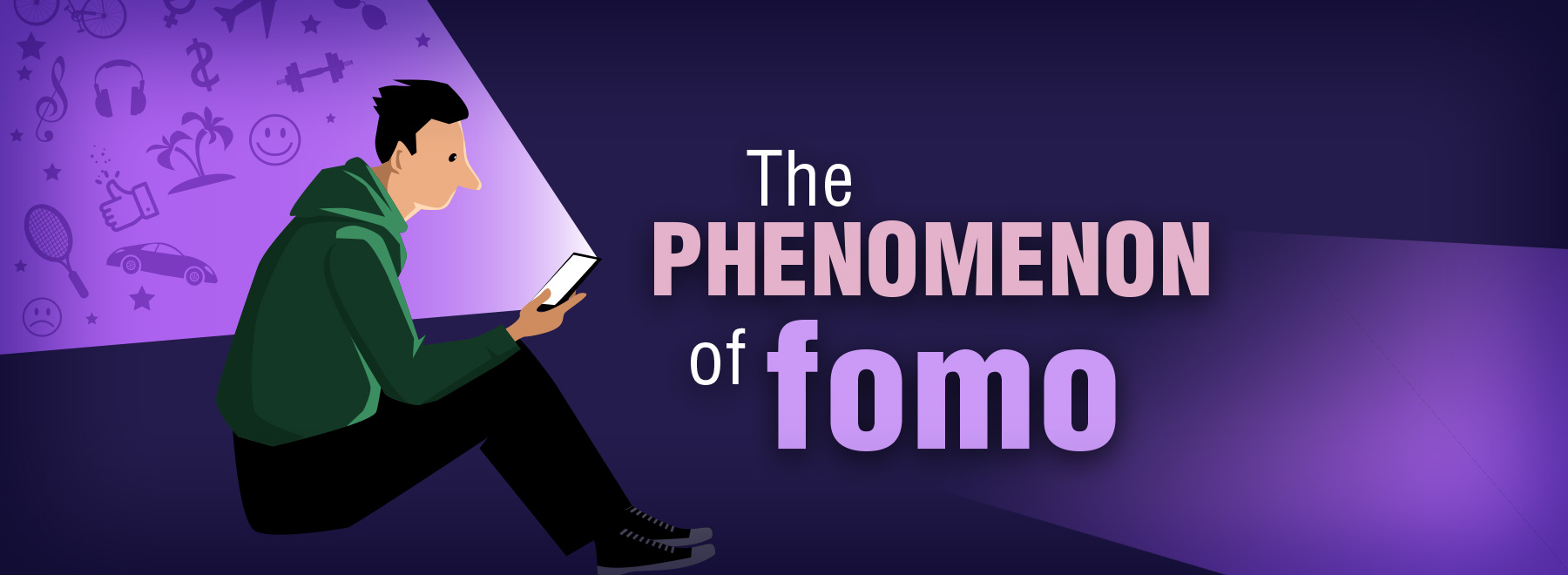Technology, pandemic spur yearning for ‘in crowd’ inclusion
It’s a complaint almost every parent has heard from a child disappointed by being left out of a social activity: “I never get to have any fun.”
For most young people, that mantra is a signpost on the way to maturity, the recognition that everyone doesn’t always get to participate in everything others may be enjoying.
But for some, a more deepened longing to take part in what friends are doing develops, and could have devastating consequences.
This yearning has been termed Fear of Missing Out, or FOMO. Spurred by social media and a rising health concern before COVID-19 hit the scene, it has only been exacerbated by feelings of isolation brought about by the pandemic, according to some health care studies.
So how is FOMO different from run-of-the-mill childhood disappointments? The answer, like anything dealing with human emotions, can be a bit complicated.

“FOMO is more intense as it is a combination of feelings and thoughts of being affected,” explained Dr. Jahanzeb Khan, assistant professor of child and adolescent psychiatry and associate program director of adult psychiatry at the University of Mississippi Medical Center. “My opinion is that it even has an envy component. Young people want to be included but, on the other hand, not necessarily be actively involved.
“Social media adds to this by making people experience jealousy in real time and creates a false illusion of what is being missed.”

Carl Mangum, UMMC associate professor of nursing and a psychiatric nurse practitioner, said FOMO may be directly related to immaturity.
“These are still maturational issues related to growing up,” Mangum said. “With technology, it is just easier and a lot more apparent on what their friends are doing without them.
“The more time spent on social media, the higher the risk of FOMO.”
That’s not to say psychiatrists and psychologists across the country are merely dealing with a bevy of Veruca Salts spending too much time on TikTok. FOMO can impact individuals in any age group and can lead to serious issues, such as difficulty in school or at work, increased chance of accidents, decreased sleep, relationship problems and eating disorders.
“Adolescents and young adults seem to have the highest incidence of it,” Mangum said. “It drops as you get to the older age groups. They tend to have less experience with technology and interact less with it.
“Their experiences in life are also different: They tend to not be effected by FOMO as much.”
Yet: “Anyone can be affected, but particularly more vulnerable are people with anxieties, as this leads to anticipation and added stress of not being able to participate in the activity,” Khan said.
While the textbook definition of FOMO is “a pervasive apprehension that others might be having rewarding experiences from which one is absent,” Khan said it can be hard for someone to realize symptoms of the disorder in him or herself.
“However, it may be easier to spot in others as they may experience emotional or mood changes, behavioral changes, thought fluctuations and even physical changes, like restlessness or stomach aches,” he said.
The COVID-19 pandemic has only increased these symptoms, for a number of reasons.
“Especially for extraverted people, COVID-19 has created a lot of anxiety, depression and fear,” Mangum said. “The digital world has been their main means of communication, contact and socialization.”
“With more people engaged online, it is serving as if people are in the know, but missing out,” Khan said. “Upon hearing and seeing such events, there is a sense developing in people that they are being left out.”
While there is no specific International Classification of Diseases (ICD-10-CM) code for FOMO just yet, those who suffer severe symptoms can be grouped under F41.9 - “anxiety disorder, unspecified” - or F40.1 or 2 - social anxiety disorder. There are no defined treatment options either, but Khan suggested borrowing psychosocial interventions from other similar conditions could be helpful.
“Analyzing thoughts, behaviors and emotions may have some utility,” he said. “’ABC’ might also be useful: Understanding the Antecedents, Behaviors and Consequences of FOMO.”
Mangum suggests taking regular breaks from social media and even deploying a visual cue on your smartphone to remind you to give it a rest.
“Getting addicted to your phone and social media may be difficult for some to overcome,” he said. “One will need to try to focus on the ‘here and now.’
“Remember, these are just tools and may not represent reality.”
To avoid falling into a FOMO pit of despair, Khan recommends a balanced, healthy lifestyle, while Mangum simply says, “Put the technology down.” To accomplish that he offers the following advice:
- Know that what you see is not necessarily real.
“When you feel FOMO coming on, remind yourself that practically every image you see on practically any screen is likely misleading.” - Try to find other people who have tapped into their ‘inner wisdom.’
“This is not about showing off, although it can certainly take that form. It’s about a need to know that someone who we respect, admire or simply feel close to really knows who we are and cares about us, even with our less-than-loveable flaws.” - Take the opportunity to give back.
“Find activities that make you genuinely feel good about yourself,” Psychology Today suggests.
While neither has yet seen any patients specifically with FOMO, Khan and Mangum said it isn’t hard to spot those who may be experiencing symptoms of the disorder.
“FOMO is not entirely new,” Khan said. “Further research is needed, but it is not surprising to see it manifest more as we become more and more involved and rely on technology. Also due to current safety concerns since we have become isolated from others, people are misperceiving that they are the only ones in this predicament while others continue to live their lives as usual.”
“With COVID, we are seeing more issues because of isolation from friends and peers,” Mangum said. “Technology helps overcome part of that problem. It is when it goes too far and the person is obsessed with it that they could develop FOMO or have anxiety, depression and fear.”
The above article appears in CONSULT, UMMC’s monthly e-newsletter sharing news about cutting-edge clinical and health science education advances and innovative biomedical research at the Medical Center and giving you tips and suggestions on how you and the people you love can live a healthier life. Click here and enter your email address to receive CONSULT free of charge. You may cancel at any time.



